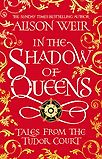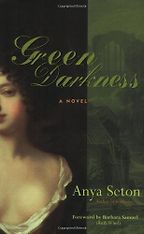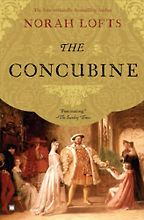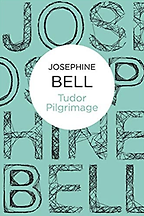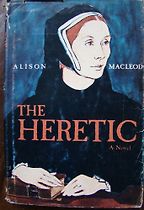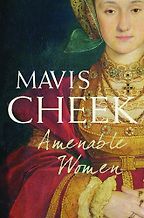I asked you to recommend Tudor historical fiction, given your extensive knowledge of the field both as historian and historical fiction author. Your bestselling work of history The Six Wives of Henry VIII was published in 1991, and since then many of your books have been on related subjects. What makes this period so engaging?
The characters. They’re dynamic, larger than life. It’s a very dramatic period. Also, we’ve got an unprecedented amount of source material. No details were considered too trivial to be reported by ambassadors. Henry VIII’s great matter brought the royal marriage into public focus for the first time in history. So we have a lot of information. Even so, there are tantalising gaps, and historians can endlessly debate them.
We’ve also got the visual record. We can see something of the magnificence of the Tudor palaces, like Hampton Court. There were wonderful costumes in that era, which grabs many people. And this is the age of the spread of diplomacy and printing.
Your novels are dramatisations of historical events. How do you feel about historical novels that are entirely fictional—how accurate do they need to be?
If novels are about fictional characters, then as long as the context is authentic enough then I think they’re fine. I enjoy them myself. But if there are glaring inaccuracies or if the historical context is misunderstood, they lose me very quickly.
Let’s talk about the books you want to recommend. First up we have Green Darkness, by Anya Seton. It came out in 1972, was a major bestseller at the time, and is now considered something of a modern classic. Why do you recommend it now?
I love this book. I was absolutely bowled over by it. There’s a lot of mystery to it. A group of people convene in Kent for a house party in the 1960s. It turns out they are all reincarnations of people who lived in Tudor times, in the reign of Edward VI. It’s all linked to the legend of a walled-up body, a skeleton that is said to have been found in Victorian times at Ightham Mote in Kent.
You have to work out who was who in a previous life, with all the dramas and tensions of their earlier existence being played out in the modern world. It’s a magical, brilliant book.
Sounds wild.
I recommend it too because it’s also got one of the best descriptions of Wyatt’s Rebellion that I’ve ever read in history or fiction.
That’s interesting. I do find that historical fiction has the effect of whetting my appetite for the history of the period. I got quite into reading about the Reformation after finishing Wolf Hall, for example.
A lot of people, including me, came to history through fiction. I’ll finish a novel then go shooting off into the history books. Some don’t. That’s why I think it’s important to make it as accurate as possible.
Some history books are readable as novels, but academic history can be quite dry. That’s the rigour of research, which is why many like their history fictionalised.
Your second book recommendation is The Concubine by Norah Lofts. It’s about Anne Boleyn, who has attracted a great deal of attention—by novelists and historians both. Why is this particular book so good?
Well, it was the first novel I read on Anne Boleyn, in the 1960s, and it’s excellent. It really sums up Anne. It’s so beautifully written that you can forgive the inaccuracies in it. There’s a fictional nurse in it, who gives her poppy juice in difficult times—but that’s one tiny detail.
Norah Lofts is my favourite author. I have all 63 of her books. She did a later one called The King’s Pleasure about Katherine of Aragon, which is excellent. But it’s only now that academic historians are starting to lend more credence to Lofts’ work. There have been a couple of theses on her books. But I’ve always admired that mid-twentieth-century type of fiction.
It’s interesting that she’s being reassessed. How would you say historical fiction is viewed by historians, as a rule?
I think the books of Norah Lofts were just dismissed as romantic fiction. But that was down to the way the books were marketed. Nowadays publishers try to make historical fiction look as smart as possible, but in those days the jackets could be quite lurid and over-romanticised.
This happened to Anya Seton as well and it quite upset her. Years of research went into her books, and they are very authentic for the time in which they are written. I can see why she got fed up with being classified as a romance writer. In America today, historical fiction is still classified as romance.
And I suppose this is a problem that has haunted fiction by female writers more generally. I know a couple of writers, both rather serious, who were horrified by how their debut novels were illustrated and marketed a few years ago. But trends are changing.
Yes. And at the time of Seton and Lofts, a lot of lightweight historical fiction was being published. The genre became very, very popular in the wake of the film Anne of the Thousand Days and the TV series The Six Wives of Henry VIII in the late 1960s and early 1970s. Once it proliferated, the genre died. It wasn’t actually revived until the publication of The Other Boleyn Girl in 2000.
It feels like a new blossoming at present.
At the moment, there’s still a mania for the Tudors. Even in 2014, when I pitched my six-book series on the wives of Henry VIII, there was a lot of interest from publishers. I thought no one would take six books, but in fact there was competition for it.
This was your Six Tudor Queens series.
Katherine Parr, The Sixth Wife came out last year. Then there was a volume of short stories, In the Shadow of Queens: Tales from the Tudor Court.
And I have more books still to come out. The Tudor Rose series looks at three generations: Elizabeth of York: The Last White Rose comes out in May; next year will see a book on her son, Henry VIII, and the third, on his daughter Mary, will be published the year after.
You must feel like you know these people extremely well, having written about them, from so many angles.
I have lived with them for many, many years!
Shall we talk about Tudor Pilgrimage by Josephine Bell next? This is much less well known, and it’s a bit different, in terms of its themes.
Yes. This was published in 1967. It’s a wonderful book, an evocation of what it was like to be a nun dispossessed when the monasteries were dissolved by Henry VIII. It’s set in the 1530s and is a beautifully told story.
I remember loving it when I was young, and I managed to get a copy a couple of years ago after it was republished. I couldn’t put it down and really recommend it.
I suppose it’s good to remember that all the decisions handed down from the throne had very human consequences. So often we focus on the lives of the nobility, but here we see a dramatisation of how it unfolds at another level of society.
Absolutely. The same goes for my next choice, which is on a similar subject.
This is The Heretics by Alison McLeod. This work of Tudor historical fiction is now out of print, although I see a few copies available online via Abe Books and similar book dealers—sometimes under the slightly shorter title ‘The Heretic’.
It’s based on the life of the Anne Askew, who was burned at the stake for heresy in 1546, and is about how ordinary people suffered quite genuinely for their faith. The detail in the book makes you feel like you are really there.
It’s interesting that the novels you’ve chosen to recommend were published several decades ago. What do you think it is that has enabled them to stand the test of time—perhaps because historical fiction is somewhat divorced from the time it was actually written?
Well, some haven’t. The first historical novel I ever read was Henry’s Golden Queen by Lozania Prole. It had a very lurid jacket. I found it because my mother marched me into a library and said, ‘get a book.’ And I found this! I think it was the colourful jacket that drew me to it. I was bored. I had graduated from books from comics, but I devoured this in two days. It was about Katherine of Aragon and Anne Boleyn, and that was it. My interest in history was born.
Get the weekly Five Books newsletter
I actually managed to get hold of a copy recently for sentiment’s sake. I’d been talking about it in interviews, when asked how I got into history. I thought, I’ve got to have another look at it. But I couldn’t read it! So not everything stands the test of time. But I went back to these—Tudor Pilgrimage and The Heretics—after many decades and I thought, my goodness, these are so well done. They ought to be better known.
Well, you’ve come to the right place. I think that might bring us to our final book choice: Mavis Cheek’s Amenable Women.
It’s wonderful, absolutely wonderful. I can’t recommend it highly enough. I know Mavis Cheek, she’s a fantastic author and her books have me creased up with laughter. It’s about Anne of Cleves’ portrait coming to life, intertwined with a story of a woman who’s been widowed—but is actually a merry widow because she’s so pleased to be rid of her boring old duffer of a husband. She sees the portrait and feels a kinship with Anne, who nightly talks to the other woman in the portraits in the room.
It’s brilliantly researched. Mavis Cheek came to speak on the historical tours I run and gave a really enjoyable talk. She really knows her stuff. So if you want the history in a very quirky and amusing way, then this is a great book for you.
I don’t normally think of historical fiction as being comic.
No. But this is so well done. It really packs a punch, calls a spade a spade.
Finally, I’ve noticed in historical fiction generally—and this pattern is very pronounced in Tudor historical fiction—there tends to be a focus on the lives of women. Why do you think that is? Perhaps it’s a corrective to the opposite bias seen in history?
Publishers tend to steer you that way. Actually, I’m writing my novel about Henry VIII at the moment. People ask how I’m managing to write from the point of view of a man, but the sources are so rich. I’m overwhelmed with source material, but I’ve lived with Henry for a long, long time. We have so many insights into his character through his letters and reports of conversations with him. So I’m not finding it a problem.
I’ve actually wanted to write about men before. During my six-book series, it became a running joke: ‘Oh, Henry has to get his say’—because each book was written from each queen’s point of view. It’s changed a little; it’s still Henry’s story, but it’s not going to focus on the wives so much.
Interview by Cal Flyn, Deputy Editor
April 13, 2022
Five Books aims to keep its book recommendations and interviews up to date. If you are the interviewee and would like to update your choice of books (or even just what you say about them) please email us at [email protected]
Five Books interviews are expensive to produce. If you've enjoyed this interview, please support us by donating a small amount.

